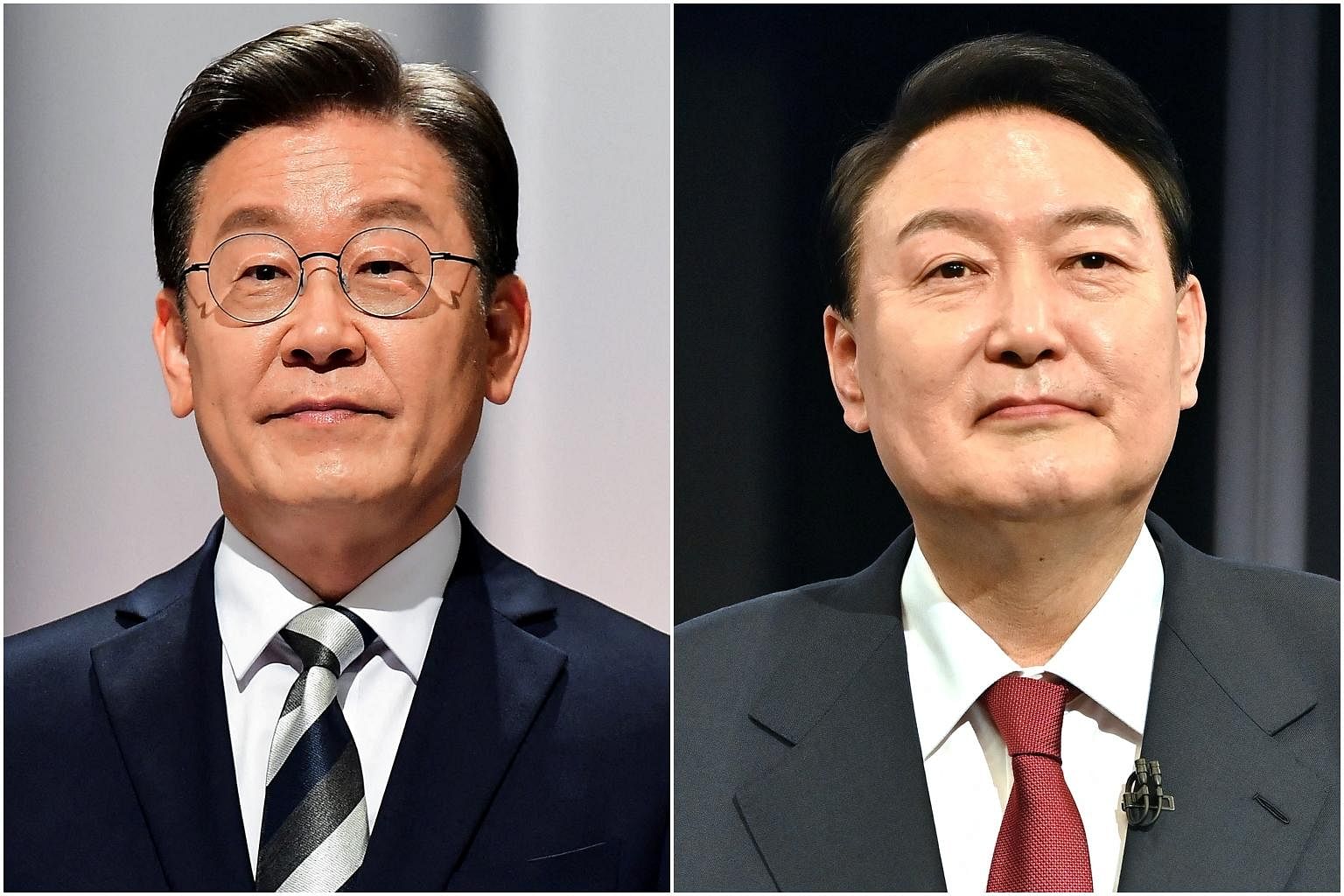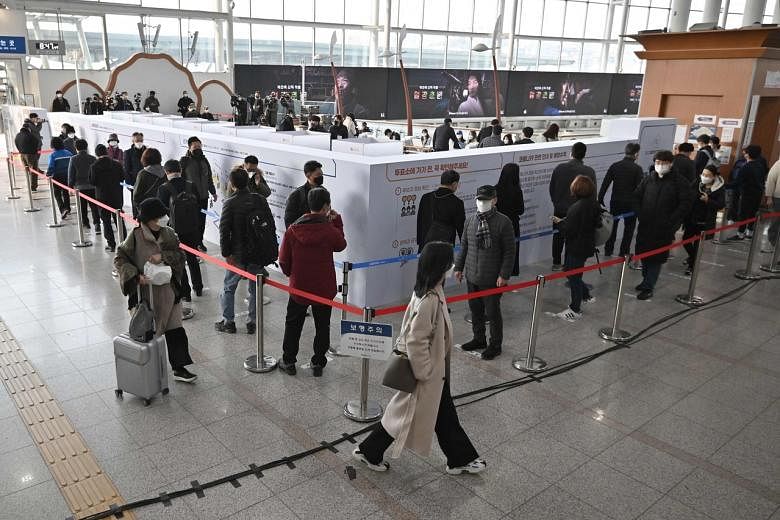SEOUL - A record 36.9 per cent of voters, or 16.3 million people, have cast their ballot for South Korea's presidential election, to be held on Wednesday (March 9), reflecting keen public interest in what is set to be one of the closest races in the country's democratic history.
But the two-day advance voting last Friday and Saturday was marred by a backlash against the National Election Commission (NEC) for mishandling Covid-19-stricken voters, and allegations of vote rigging.
Those who tested positive for Covid-19 were allowed to cast their votes at polling stations nationwide last Saturday between 5pm and 6pm, but some waited as long as two hours in the cold as officials scrambled to cope with the unexpectedly high turnout.
Some of the voters complained that their ballots were placed inside temporary containers instead of official ballot boxes, while others said they were shocked when theirs were collected in shopping bags and even trash bags.
This gave rise to suspicions of election rigging.
Voters were also concerned about their ballots not being counted, or tampered with.
There were reports that some voters had received their ballot papers already stamped against the names of either of the two main candidates - Mr Lee Jae-myung of the ruling Democratic Party and Mr Yoon Suk-yeol of the main opposition People Power Party.
Officials attributed this to a "simple mistake" of handing out used ballot papers to those next in line.
The NEC has since apologised for "shortcomings in carrying out early voting for Covid-19 patients due to the unprecedentedly high turnout and limits in personnel and facilities".
But the agency has denied allegations of election fraud and insisted that officials collected the votes of Covid-19 patients separately due to election rules that each polling station have only one ballot box.
Covid-19-positive voters were told to put their completed ballots inside envelopes, which would later be placed inside the official ballot box.
The same protocols were followed during the 2020 general election, but there were fewer numbers of Covid-19 patients back then.
On Monday (March 7), the NEC announced after an emergency meeting that it would allow Covid-19-positive voters to put their ballots into the same ballot boxes as regular voters. But they would get to vote only between 6pm and 7.30pm - after voting proper ends.
South Korea reported more than 200,000 Covid-19 cases on Monday, the fourth time in a row it has done so, and more than a million people with mild symptoms are recovering at home.
Wednesday's election is being closely watched as it has been a neck and neck race between the two front runners.
Mr Lee, the former governor of Gyeonggi province who is known for pushing through populist policies, and Mr Yoon, a former prosecutor-general who rose to fame as an icon of fairness and justice, have ramped up campaigning in the final stretch to sway undecided voters.

The police, in the meantime, have tightened security to ensure safety at campaign rally sites, after Mr Song Young-gil, leader of the ruling Democratic Party, was attacked by a 70-year-old man who used a hammer to hit him on the head several times.
The assailant has been arrested and sources said Mr Song's injuries were not life-threatening.
Mr Lee, who was on the campaign trail in Busan, denounced the attack as "an act of violence that undermines democracy".
Mr Yoon, who was campaigning in Gyeonggi province, urged the government to ensure safety during the remaining campaign period. "Any violence that interferes with elections cannot be justified," he said.


